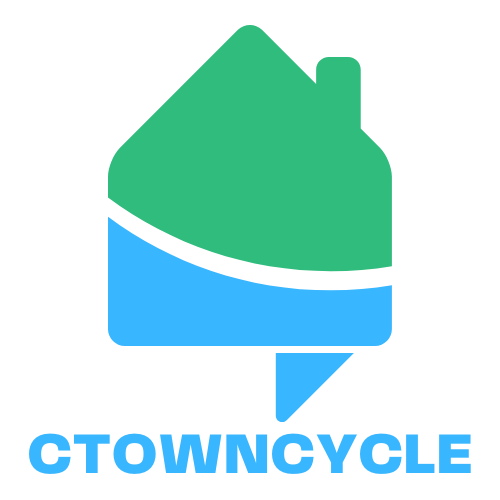Table of Contents
ToggleImagine living in your dream home while someone else pays your mortgage. Sounds like a fantasy, right? Welcome to the world of house hacking, where savvy homeowners turn their properties into income-generating machines. It’s not just a clever way to lighten the financial load; it’s also a smart strategy for building wealth in real estate.
What Is House Hacking In Real Estate
House hacking refers to strategies allowing homeowners to earn income from their residential properties. This approach commonly includes renting out rooms, separate units, or even utilizing properties with multiple living spaces. Individuals can significantly reduce their mortgage payments through this method while living in their properties.
Investors often view house hacking as a way to build equity faster. By generating rental income, homeowners can allocate funds toward their mortgage or reinvest in additional properties. It also provides an opportunity to gain experience in property management, a crucial skill for future investments.
House hacking can take various forms. Examples include renting a room in a single-family home or purchasing a multi-unit building where the owner occupies one unit and rents out the others. Each scenario creates potential cash flow while enhancing the homeowner’s financial stability.
In addition, house hacking contributes to community development. Renting to tenants helps foster diverse neighborhoods while providing affordable housing options. This practice benefits both the homeowner and the tenants.
Local markets influence the effectiveness of house hacking. Areas with an abundance of renters, such as near colleges or urban centers, often yield higher income potential. Homeowners must analyze market conditions to maximize profitability.
Overall, house hacking offers a practical solution for reducing housing expenses while creating a pathway to wealth in real estate. By leveraging property ownership, individuals enhance their financial portfolio through strategic rental income.
Benefits Of House Hacking

House hacking offers a multitude of benefits to homeowners seeking financial relief and lifestyle improvements.
Financial Advantages
Reduced expenses represent a significant financial advantage of house hacking. Homeowners can generate rental income by renting out rooms or separate units, lowering mortgage payments substantially. The income earned often helps cover property taxes and insurance costs, increasing overall savings. Homeowners build equity faster since rental income can contribute to paying down the mortgage. Properties in desirable locations typically garner higher rental rates, enhancing profitability. Investment potential grows, allowing for reinvestment in additional properties or improvement of existing ones. Overall, house hacking functions as a strategic move for wealth accumulation.
Lifestyle Benefits
Living conditions can improve through house hacking opportunities. By sharing living space with tenants, homeowners often meet new people and create lasting connections. Flexible living arrangements foster a sense of community, enriching cultural experiences. The arrangement allows homeowners to customize their spaces while receiving financial support. Independence remains intact; renters can also bring their unique lifestyle elements. Overall, the combination of financial relief and social interaction makes house hacking an appealing option for many homeowners.
Types Of House Hacking Strategies
House hacking offers various strategies, allowing homeowners to maximize rental income while minimizing expenses. Each approach caters to different property types and personal preferences.
Room Rentals
Renting out individual rooms in a single-family home represents one popular strategy. Homeowners benefit from adding roommates to their living situation, which helps divide utility costs and mortgage payments. Flexibility exists in selecting tenants, as long-term arrangements or month-to-month leases accommodate various preferences. This method effectively generates income while maintaining personal space and independence.
Multi-Family Properties
Investing in multi-family properties enhances house hacking opportunities significantly. Homeowners can occupy one unit while renting out the others, tapping into multiple income streams. This approach allows for greater cash flow, which helps cover additional costs like maintenance and repairs. Property management becomes an essential skill, as managing tenants leads to valuable experience in the real estate market.
Airbnb Hosting
Hosting on platforms like Airbnb provides homeowners with an alternative income source. Short-term rentals attract travelers seeking accommodation in popular areas, maximizing rental potential. Homeowners can set pricing based on demand, leading to increased earnings during peak seasons. Flexibility in booking allows homeowners to use their space when needed, creating a balance between personal use and income generation.
Getting Started With House Hacking
House hacking offers an innovative approach for homeowners wanting to decrease their financial burdens while increasing their investment potential. Successfully navigating this strategy starts with understanding property options and financing.
Finding The Right Property
Selecting the right property is crucial for effective house hacking. Look for homes in neighborhoods with strong rental demand, particularly near colleges or urban centers. Target properties that have separate entrances or multiple units, as these arrangements encourage privacy for renters and homeowners alike. Examine local market trends to determine potential rental income. Assess property size, layout, and amenities that attract tenants. Factors such as proximity to public transport and essential services can significantly enhance rental appeal. Remember, the ideal property aligns with financial goals and lifestyle preferences.
Financing Options
Identifying financing options plays a vital role in house hacking success. Conventional mortgages often allow homeowners to purchase properties with lower down payments, typically around 3-5%. Consider FHA loans that offer advantageous terms for first-time buyers, as these require lower credit scores. Analyze additional financing choices such as VA loans for veterans, which provide 0% down payment alternatives. Explore local programs that assist with down payment funding or offer reduced interest rates. Evaluate the impact of rental income on monthly affordability; lenders sometimes consider projected rental income in debt-to-income calculations, potentially enhancing borrowing capacity.
House hacking presents an innovative approach for homeowners looking to ease their financial burdens while building wealth. By leveraging rental income, they can significantly reduce mortgage payments and accelerate equity growth. This strategy not only enhances financial stability but also fosters community connections through shared living experiences.
With various methods available such as renting out rooms or investing in multi-family properties, house hacking offers flexibility tailored to individual lifestyles and market conditions. As homeowners explore this route, they can unlock opportunities for financial freedom and investment potential. Embracing house hacking could be the key to transforming a property into a valuable asset while enjoying the benefits of shared living.




